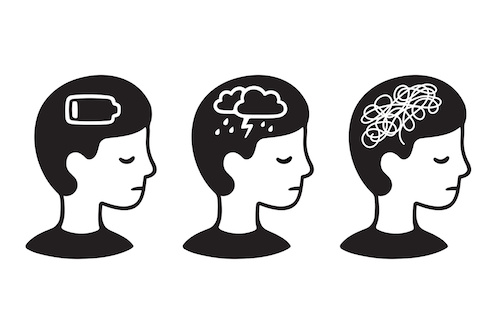Why the people get obsessed with celebrities?
Do you know there's a syndrome called "celebrity worship syndrome (CWS)" ?
Celebrity worship syndrome has been described as an obsessive-addictive disorder where an individual becomes overly involved and interested with the details of the personal life of a celebrity.
But why the people tent to get obsessed with celebrities?
There’s no known direct cause of celebrity worship syndrome.
As a condition with obsessive-addictive properties, the presence of certain mental health conditions may play a role in the development of celebrity worship.
People who may have a higher chance of developing celebrity worship tendencies include those living with:
- anxious-ambivalent and avoidant attachment styles
- neuroticism
- psychoticism
- materialismminimal religious orientation
- fantasy proneness
- low self-esteem
- narcissism
- cognitive inflexibility (being uncompromising on beliefs)
- poor intimate relationship quality
- difficulty coping with conflict
- depression
- anxiety
- obsessive-compulsive disorders and behaviors (compulsive shopping, for example)
- dissociation
- poor personal boundaries
- addictive disorders

How celebrities influence teens? and why it matters
Celebrities influence teens in other ways as well. When stars post
images of themselves drinking or smoking on social media, they normalize
substance use. Furthermore, they make it appear attractive and cool.
Moreover,
teens often idolize celebrities and want to be like them. Therefore, if
they see images on Instagram of a favorite singer or actor using drugs
or drinking, they might be tempted to do so as well.
For example, a University of Pittsburgh School of Medicine study
looked at teenagers who frequently listen to music that contains
references to marijuana. Subsequently, they found that these teens are
more likely to use the drug than teens with less exposure to such
lyrics.
Many celebrities are open about their struggles with addiction and
mental health. As a result, they help to reduce stigma and raise
awareness.
For example, before reportedly entering rehab after an apparent drug overdose earlier this summer, Demi Lovato
released a song about relapse, titled “Sober.” Consequently, the song
inspired young people nationwide to open up about their substance abuse
and mental health challenges.
How to avoid negative influence?
Parents can use celebrities experiences as avenues for talking about sensitive subjects.
Thus,
celebrity anorexia cases offer opportunities to talk to teens about how
dangerous the “thin ideal” can be. And they can discuss healthy ways to
stay fit and eat well.
Moreover, stars who speak out about coping with
mental illnesses demonstrate that people with such diagnoses can be
successful and happy.
Parents might ask teens what they admire
about the stars they follow. What qualities do they want to emulate?
Perhaps creativity, passion, or dedication? What can they learn from the
lives of celebrities who have struggled with depression, anxiety,
eating disorders, or substance use?



Unfortunately most of the people have at least one of those problem, and to solve them they use to follow "fake idols". Thanks partner.
ResponderEliminarI didn't know that there was a syndrome related to the obsession with celebrities, I like the more informative and phychological view on this topic, thanks for sharing with us.
ResponderEliminarI like how you captured the reality of celebrities influencing teenagers
ResponderEliminarI like the way you think about celebrities
ResponderEliminarIt was unexpected to know that there was a syndrome involved in obsessing over celebrities and it's sad to see the bad influence it can have on society.
ResponderEliminarWow i don't even know that excist the Celebrity worship syndrome, its very interesting the way you talk about the subject
ResponderEliminarIt is worrying to see how many go after a celebrity in search of being closer to them, causing all those problems that will arise personally to one, whether psychological or physical.
ResponderEliminar